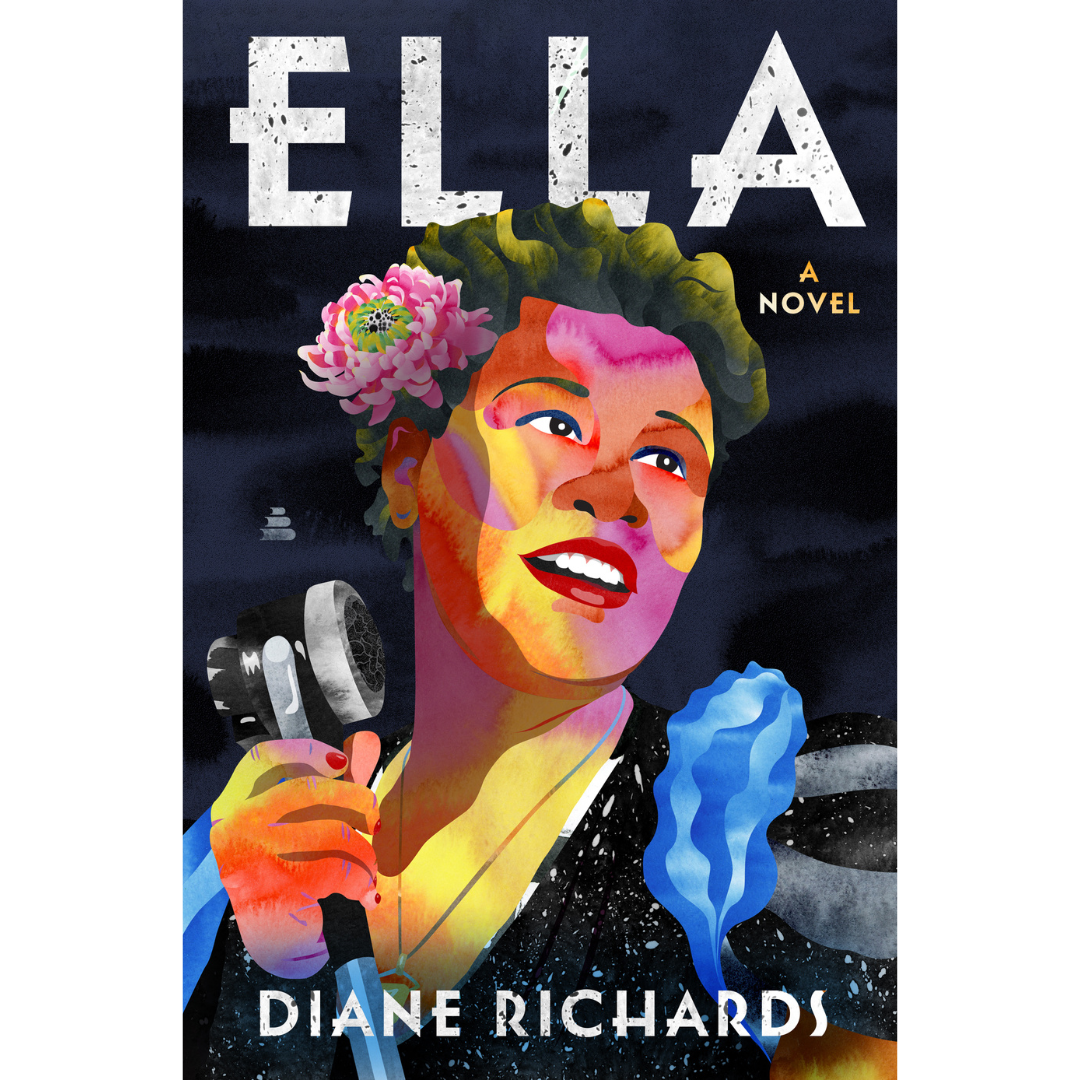
Ella: A Novel
“The only thing better than singing is more singing. It isn't where you came from, its where you're going that counts. I stole everything I ever heard, but mostly I stole from the horns.”
- Ella Fitzgerald
About the Novel
Ella: A Novel
In 1932, when Ella Fitzgerald was fifteen, her life fell apart. Her beloved mother, Tempie Da Silva, died unexpectedly, leaving her and her sister Frannie in the care of Ella’s stepfather, Joe Da Silva, a Portuguese immigrant. Until then, Ella had lived in a bubble: Tempie taught her to pursue her dreams of being a dancer, and promised her that a “Tiffany Life” was possible if you worked hard enough.
Joe, however, was not as nurturing. After Tempie’s passing, he became physically abusive, demanding that Ella stay home instead of dancing or even going to school. Tensions between them escalated until he nearly raped her.
Ella fled to Harlem, to live with Tempie’s sister, Virginia. Desperate to carve out a place in her Auntie’s heart, Ella took over the household chores. But in Depression-era Harlem, this wasn’t enough. Ella needed to earn money – good money – to help support them. In turn, she began running numbers for the mob and working as a lookout for a local brothel.
Previously a good student, Ella’s grades fell. Under huge pressure to make money for the family, she began skipping school. Then, like so many Black children in Harlem at the time, she was picked up by the police and sent to the New York State Training School, a brutal reform school upstate. Here, she was beaten, thrown in solitary confinement, and treated like a “filthy animal.”
After a year, Ella escaped. Unable to return to her aunt’s house – she believed that her Aunt had actually turned her into the authorities in the first place – Ella made her own way on the Harlem streets. She survived by dancing on a stretch of Seventh Avenue known as “Black Broadway,” earning tips alongside other dancers, jugglers and novelty acts.
Then, on November 21, 1934, Ella’s life changed once again. Now seventeen, she performed at the Apollo Theater’s first amateur night. Clad in a ragged dress and workman’s boots, she learned that she was slated to dance directly after a professional dancing team. Up against such competition, she’d have no chance of winning the contest. More importantly, she realized that the Apollo had booked her as comical relief, to give the audience someone to laugh at, someone to boo offstage. The Apollo had set her up for failure.
But Ella Fitzgerald, after all she’d endured, was not someone who would be set up to fail. Already onstage – awkward, diffident, poorly dressed – she told the emcee that instead of dancing, she’d sing. Her first few notes were a disaster: catcalls echoed throughout the theater. She started again, focused, channeled the past two years of deprivation and hardship, found her voice, and sang.
She brought down the house and won the competition.
